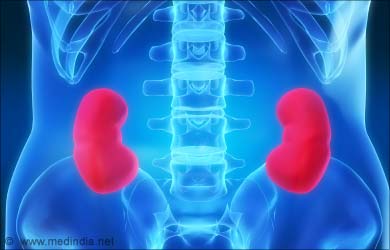- Hyponatremia - (http://en.wikipedia.org/wiki/hyponatremia)
About
What is Hyponatremia?
Hyponatremia is a condition wherein the concentration of sodium in the blood is low. The normal level of sodium in serum is between 135-145 mEq/L. In hyponatremia, the blood sodium levels fall below 135 mEq/L. Sodium is vital for several body functions such as regulation of blood pressure, maintenance of fluid balance and preserving normal functioning of the nervous system. Hyponatremia occurs due to excess of water in proportion to the plasma sodium. It may also occur when there is an inadequate salt intake in proportion to water intake. There are three types of hyponatremia:

- Euvolemic hyponatremia - Here, the total water level in the body increases, but the body's sodium content stays the same. Drinking only plain water after strenuous exercises may cause this condition.
- Hypervolemic hyponatremia - In hypervolemic hyponatremia, the levels of both sodium and water in the body increase, but the increase in water content is greater. Chronic diseases including chronic renal failure, heart failure or liver cirrhosis may lead to such condition.
- Hypovolemic hyponatremia - In hypovolemic hyponatremia, both water and sodium are lost from the body, but the sodium loss is greater than the water loss. Conditions such as dehydration, vomiting, diarrhea or excessive sweating can cause this type of hyponatremia.
Causes of Hyponatremia:
Hyponatremia is most commonly causes by major burn injuries, diarrhea, dehydration, excessive sweating, diuretic medications that increase urine output and excess water intake after strenuous exercises, Syndrome of inappropriate antidiuretic hormone secretion (SIADH) and chronic conditions such as chronic kidney disease, heart failure or liver cirrhosis may also cause hyponatremia.
Hypervolemic hyponatremia can be caused by-
- Congestive heart failure
- Liver cirrhosis
- Acute or chronic kidney disease, nephrotic syndrome

Euvolemic hyponatremia can be caused due to-
- Severe pain or nausea

- Hypothyroidism, glucocorticoid insufficiency
- Syndrome of inappropriate anti-diuretic hormone secretion (SIADH)
- Neuropathy
- Certain neuropsychiatric disorders
- Hyperglycemia
- Mannitol infusion
- Drugs like carbamazepine, opioids, barbiturates, vincristine, clofibrate, cyclophosphamide, chlorpropamide, and phenytoin.
Hypovolemic hyponatremia can be caused due to-
- Severe dehydration
- Severe diarrhea and vomiting
- Excessive sweating

- Salt-losing kidney disease
- Gastric suction
- Protein-losing enteropathy
- Intravenous immunoglobulin (IVIG) when mixed with maltose and given to patients with renal failure
- Addison disease
- Diuretics (particularly thiazide diuretics)
Symptoms of Hyponatremia
Common symptoms of hyponatremia include nausea and vomiting, headache, lethargy, fatigue, loss of appetite, restlessness and irritability, confusion, and muscle weakness, spasms or cramps. Severe neurological symptoms such as seizures, altered consciousness, or even coma occur when the sodium levels falls below 125 mEq/L.

Treatment of Hyponatremia
The treatment of hyponatremia depends on the specific type of hyponatremia, and its underlying cause.
Treatment may include intravenous (IV) infusion of fluids and electrolytes (saline) through a vein (IV) in case of dehydration, diarrhea or other conditions causing hypovolemic hyponatremia. If diuretics are the cause of hyponatremia, they should be stopped.

Medications and dietary fluid restriction should be combined in conditions causing hypervolemic hyponatremia, such as heart failure or liver cirrhosis. Long-term dialysis or renal transplantation is recommended in nephrotic syndrome and chronic kidney failure.
Medications are prescribed to relieve symptoms in other conditions causing hyponatremia.







